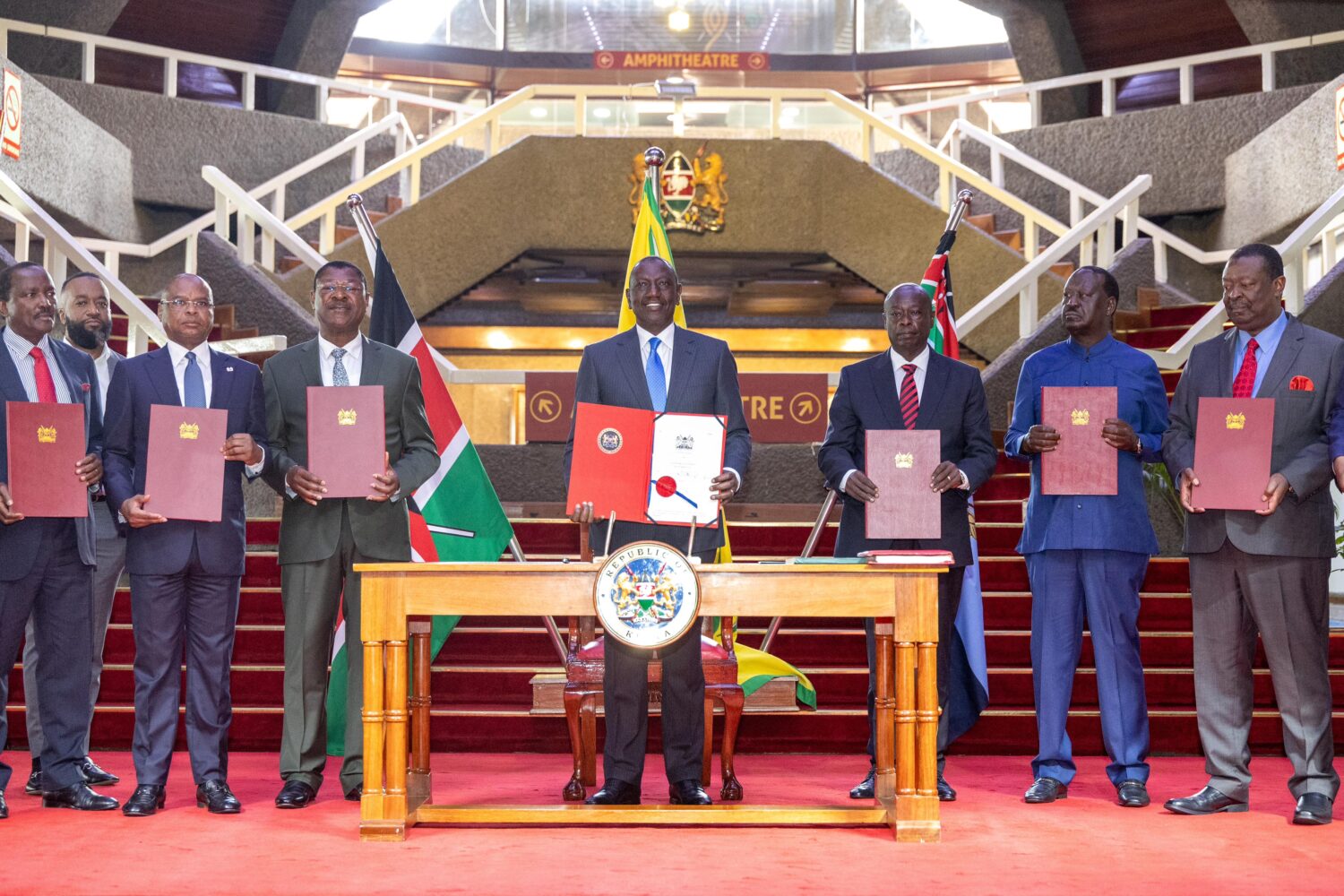President William Ruto on Tuesday, July 9 signed into law the Electoral and Boundaries Commission (IEBC) Amendment Bill, 2024.
Ruto assented to the Bill, the first to be passed by Parliament based on the recommendations of the National Dialogue Committee (NADCO) report, at the Kenyatta International Convention Centre (KICC).
He was in the presence of his deputy, Rigathi Gachagua, Azimio co-principals Raila Odinga (Orange Democratic Movement) and Kalonzo Musyoka (Wiper Party), leaders of the two House of Parliament among others.
But what entails the Bill?
When the IEBC appeared before the joint Senate and National Assembly Justice and Legal Affairs Committee (JLAC) to submit views on the Bill, the Commission Secretary and CEO, Marjan H. Marjan, appreciated the progressive nature of the bill in enhancing the efficacy of the Commission and its processes.
The Bill seeks to introduce pivotal reforms aimed at refining the operational framework of the IEBC. The proposed amendments underscore the necessity for enhanced transparency, efficiency, and accountability within the Commission’s processes.
Key amendments the Bill proposes
The Bill seeks to redefine critical terms within the Principal Act. The Bill proposes the deletion of specific phrases from the definition of “chairperson” to streamline the understanding of roles within the IEBC.
Additionally, it introduces the term “parliamentary party” to mean a coalition of parties constituting no less than five percent of the National Assembly membership.
The Bill also aims to expand the criteria for appointments to the IEBC by incorporating expertise in information technology and accounting. This diversification of skills is anticipated to bolster the commission’s efficiency and effectiveness.
The Bill also eliminates the provisions allowing the vice-chairperson or any member to act as IEBC chairperson in the event of a vacancy. This move is intended to consolidate leadership and maintain clear lines of responsibility within the Commission.
Further, the Bill proposes to reduce the term of the Secretary of the Commission from five years to four years. This adjustment aims to align the tenure with the broader administrative cycle and promote continuity.
Electoral integrity
The Bill, in a bid to enhance electoral integrity, introduces a mandatory review of the conduct of general elections.
This means that the IEBC will be required to publish a comprehensive report within eighteen months post-elections, which will then be submitted to Parliament. This provision is designed to ensure ongoing improvements in electoral processes.
The Bill outlines new procedures for the delimitation of electoral boundaries, requiring reports to be considered solely by the National Assembly.
The Bill has also altered the number and manner of forming IEBC’s selection panel, in a bid to enhance inclusivity and transparency in the process.
Consequently, the Bill proposes expanding the panel from seven (7) to nine (9) members and revising the nomination process. It mandates the Parliamentary Service Commission to finance the panel’s operations, ensuring sufficient resources for thorough and impartial selection processes. The panel will have a 90-day deadline to complete its recruitment tasks, with possible extensions subject to parliamentary approval.
Composition of IEBC Selection Panel
Amendments to the quorum and decision-making processes within the Commission are also proposed, altering the requirement from a simple majority of members present to a majority of all members.
The Bill also includes transitional provisions to manage the dissolution and reconstitution of the selection panel, ensuring continuity in the Commission’s functions.










